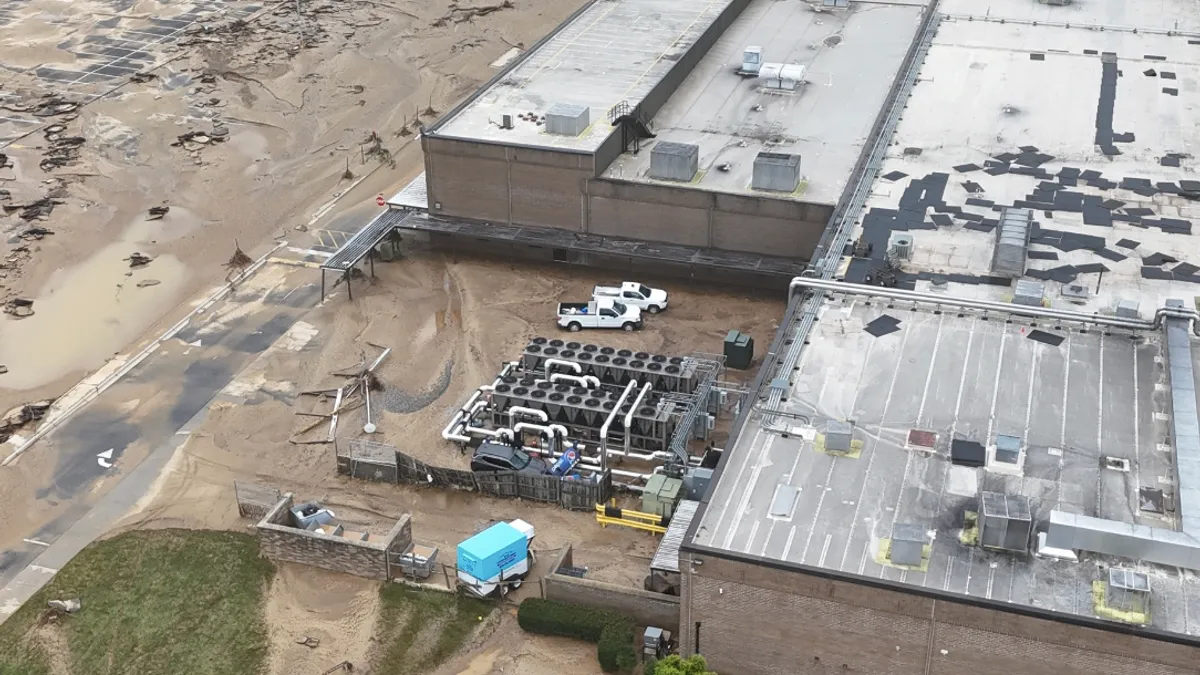Baxter said Thursday the company does not yet have a timeline for when its North Carolina facility damaged by Hurricane Helene will be operational.
The manufacturing plant was “significantly impacted by the rain and storm surge from Hurricane Helene,” and Baxter said earlier this week that it closed the facility as a result. The company is working to restore operations but is experiencing difficulties due to storm damage, including accessing bridges that lead to the site.
“While we look forward to returning to full operations in the future, there are many components to the recovery process given the nature of sterile drug manufacturing,” Baxter said in the statement. “We are working with the greatest urgency, but we do not yet have a timeline for when operations will be back up and running.”
The company has implemented supply allocation strategies to manage inventory and minimize disruption to patient care. Currently, customers can order only a specific amount of products to help limit stockpiling and maintain “equitable access” to supplies. The allocation strategy includes saline, dextrose and PD solution products manufactured in all sizes.
Baxter first notified the public on Sept. 29 about the closure of its North Cove facility in Marion, North Carolina, which manufactures dialysis solutions and IV fluids. The facility is Baxter’s largest manufacturing site, employing more than 2,500 people.
In its latest update, Baxter said it has “established contact with the vast majority” of employees, and is “actively working to confirm the well-being of the remaining employees.”
Ongoing issues with cell phone service have complicated the process of contacting people, the company added.
Baxter is still assessing the full damage to the site and is working with remediation firms. There are about 500 workers currently, and Baxter expects this number to double in the next week, according to the statement.
A crucial challenge is that bridges to the site were damaged in the storm. One access point requires re-establishing a county-maintained bridge, the company said, which would allow Baxter to transport remediation equipment to the location and get finished goods not damaged by the storm to customers and patients.
“Our team has worked diligently to establish a temporary bridge to support limited transfers and, with tremendous support from state and local officials … we expect a permanent bridge will be installed by the Army Corps of Engineers and North Carolina Department of Transportation in the coming weeks,” the company wrote.
Along with limiting product purchases, Baxter is working with the Food and Drug Administration to better use the company’s global manufacturing network to minimize the impact on supplies. It is communicating product information directly to group purchasing organizations, customers and distributors.
“While healthcare practitioners should use their professional judgment in assessing the needs and resources of their individual organizations and patients, our Medical Affairs team is also offering support and resources to assist in product management and conservation actions,” Baxter added.
Baxter previously said it expects a negative impact on its financial results, and it will provide an update on its third-quarter earnings call. Evercore ISI analysts wrote in a Wednesday note to investors that a fourth-quarter impact is “likely to be self-contained and should make comps easier for FY25.”











